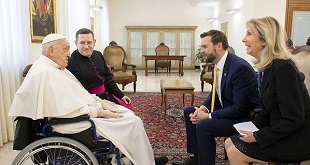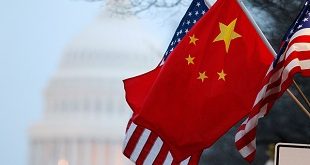
By Erik Solheim
The most important of all financial flows are the illicit funds that pour out of so many developing countries
OSLO – Poverty is not only about not having enough money. It is also about exploitation and oppression, and about armed conflicts and wars that make it impossible to run a business, visit the doctor, or send children to school. In short, poverty is about politics, and the need to devise political solutions to its underlying causes, which involves more than providing money.
The world has changed greatly since 2000, when the international community adopted the Millennium Declaration and the Millennium Development Goals (MDGs). There has been a major shift in geopolitical power, with countries previously regarded as poor enough to receive aid transformed into emerging-market drivers of the world economy. Power has also shifted in the global political arena, with the global financial crisis catalysing the emergence of the G-20.

If the fight against poverty is to be based on our traditional carbon-heavy growth path, the climate consequences will be devastating, even if the richer parts of the world were to get rid of all emissions today. The result would be floods, drought, dramatically reduced food production, and a great loss of our precious biodiversity. All of this would obviously lead to a dramatic increase in poverty around the world, but, as always, the poorer countries would be the hardest hit.
Yet not to fight poverty is perhaps a worse option still. Not providing proper access to energy would mean not only denying a billion people their basic needs and rights, but also that more wood will be chopped down for firewood, resulting in deforestation and desertification.
Rich countries’ engagement in the fight against global poverty has always been based on justice and a moral imperative. But our experience during this first decade of the twenty-first century has made it clear that fighting poverty is also necessary for a secure future.
As Norway’s minister for both the environment and development since 2007, I meet with other countries’ ministers with both portfolios, and it has come as a shock to see how the two groups lead such separate lives. Each has its own important agenda, its own analysis of the challenges ahead, its own strategic plans, and literally its own language. While each recognizes the importance of the other’s agenda, unless they talk and act together, neither group’s goals will be achieved.
Meanwhile, global climate negotiations – now the most important forum where development and environment experts and decision makers meet – have proven that the era of Western global hegemony has passed. The so-called developing world contains something that we want: huge untouched rainforests that are vital to our future existence.
These countries are able to choose a different technological path to growth, one based on low-carbon strategies and green principles. It is a path that we desperately need them to choose, but one that also means greater negotiating power for poorer countries than we have ever seen. It will be challenging, but maybe also healthy for our common future.
The amounts needed for development, peacekeeping, and climate adaptation and mitigation will be enormous, and we have been debating for years the appropriate level of aid. But, although aid is important, public funding from the developed countries can never be enough, even if we were to fulfill all our pledges.
Over the last decade, innovative financing has become the new buzzword, and not just for development. As part of the climate negotiations, new mechanisms for mobilizing funds are being suggested, with levies on air travel and taxes on financial transactions perhaps the best known. Such funding schemes’ great innovation is that the richest people would pay, regardless of their own country’s economic position.
But the most important of all financial flows are the illicit funds that pour out of so many developing countries, which the Tax Justice Network estimates to be around ten times the development aid that they receive. Much of this money comes from cross-border financial transactions linked to illegal activities, with profits from organized crime and the trafficking of drugs, weapons, and human beings accounting for a substantial proportion. Moreover, while large sums disappear through fraud, corruption, bribery, smuggling, and money laundering, the largest share of illicit financial flows is related to commercial transactions, often within multinational companies, for the purpose of tax evasion.
These flows are made possible mainly by tax havens, so the fight against global poverty should also be a fight against them. Tax havens make economic crime more profitable, and the only way to fight them is to adopt global agreements on transparency in financial transfers, which should also cover companies on a country-to-country basis.
We must be careful not to fool ourselves into believing that the MDGs can be achieved through development aid alone. The wider politics of poverty must be placed at the top of the international agenda, along with the three factors most critical to development: climate, conflict, and capital.
Erik Solheim is Norway’s Minister for Development and Environment.
 The Independent Uganda: You get the Truth we Pay the Price
The Independent Uganda: You get the Truth we Pay the Price



